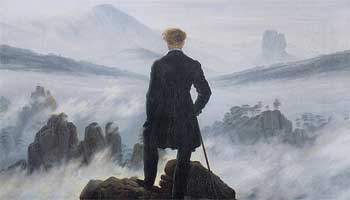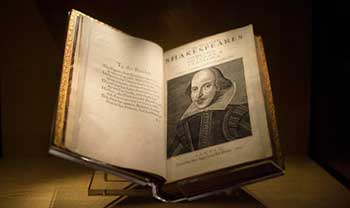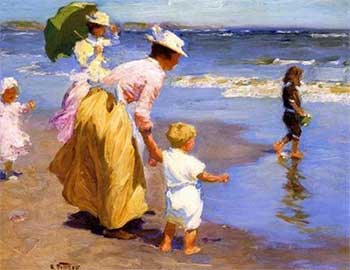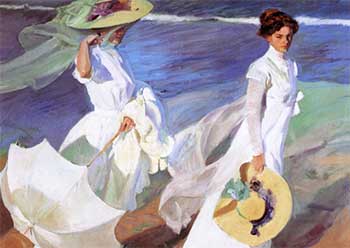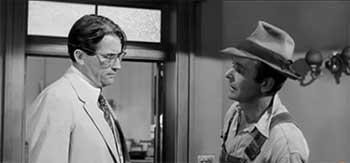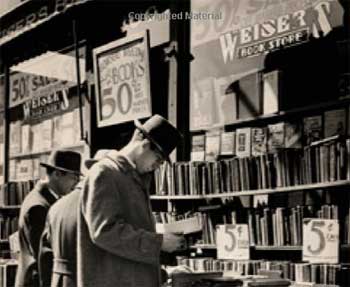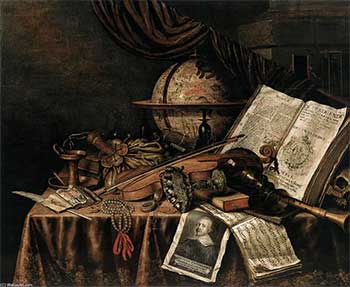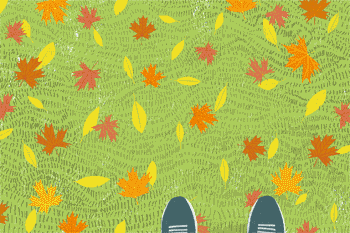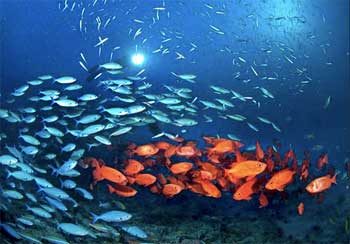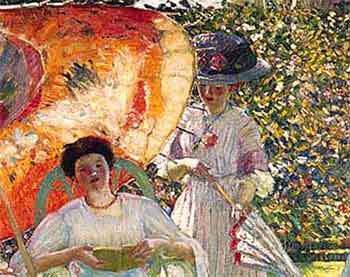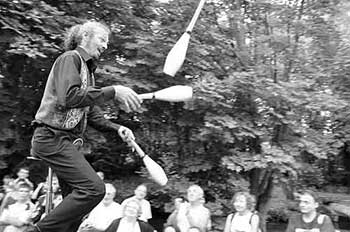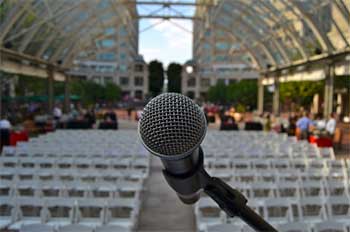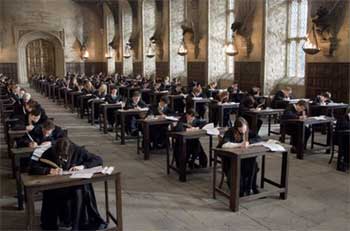Schedule | Fall 2017
Jump to Today | September | October | November | December |
![]()
August
| WEEK 1 T 8/29 |
Welcome to ENGL 8906!This course introduces first-year MA students to advanced literary study in two ways.
For more, see the syllabus. |
Day 1. Introductions:
|
| R 8/31 | HomeworkReadPlato, The Republic, Book X (I will give you a handout for this reading): pages 307-324.1 Write and Post to Moodle By NoonBefore noon on the day of class, post
The first question should help us see how Plato is idealist in his philosophy, and to understand the logic of this The second question should help us see how Plato's idealism might inform the writing, reading, and criticism of texts. (In other words, how do we tell whether we're following the logic of idealism when we're writing, reading, interpreting, or critiquing a text?) Directions for Writing Both QuestionsBe sure to wrap each question around a specific quotation from the reading Cite a particular passage and page number. It helps to identify the column (R or L, if there are columns on the page) and how far down the page with a decimal point (e.g., .5 for halfway down). Also include beneath each question a sentence or two commenting on the directions that you hope the question might send discussion. Please label the parts of the question:
Read and Take Notes (noon - 3)Between noon and 3:00, read your classmates' questions and make notes on your responses. Try to find another quotation from the reading to "wrap" your reaction or answer. |
Day 2. Plato, Writing & Idealism:
|
September
WEEK 2 |
HomeworkRead1. Marx. "Preface" to A Contribution to a Critique of Political Economy. (1859) Szeman and Kaposy, pages 106-108 2. Marx and Engels. "The German Ideology." (1846) Szeman and Kaposy, pages 161-171 3. Marxist critic Fredric Jameson's definition of history from his book The Political Unconscous. Write and Post by NoonWrite a discussion question--using the "Set-Up, Question, Rationale" format as before--about one or more of the readings assigned. Post it to the Moodle forum "Marx" This questions should help lead us to consider and understand something about the Marx readings as examples of "materialist" thinking (as opposed to idealist or constructionist thinking). Your question should follow from our organizing question for today (above right). Between Noon and 3:00Read over your classmate's posts for today, decide on two questions you think would be most helpful to consider in class, and note down the page numbers of some quotations or ideas you'd use in answering. Bring 8 Copies of 2 CFPsFrom one or both of the sources below--or elsewhere, if you prefer--search through academic CFPs (Call for Papers) to find two conferences, events, or special issues with topics that interest you.
Make and bring enough copies of both CFPs for everyone. Things to Consider in Choosing
|
Day 3: Marx and Materialism:In what ways do texts reflect their material contexts, and how does the awareness condition our writing, reading, and interpretation of texts?
Resources
|
| R 9/7 | HomeworkCFPsRead over the CFPs you received last time and make notes toward answering these questions:
ReadJacques Lacan. "The Instance of the Letter in the Unconscious, or Reason since Freud" Szeman and Kaposy, pages, 432-448 Write and Post Before NoonIn the Moodle forum, "Lacan" write a discussion question that helps us begin exploring te organizing question for today (above right). Be sure to wrap the question around a specific quotation with a page number. Label the parts of the question:
Between Noon and 3:00Read over your classmate's posts for today, decide on two questions you think would be most helpful to consider in class, and some quotations or ideas you'd use in answering.
|
Day 4. Lacan and ConstructionismIn what ways is (what we call) reality as much a product of our shared ways of talking and seeing as it is about actual things or ideas?
Resources
|
WEEK 3 |
HomeworkEmail me to set up a time to meet early this week to talk about
|
No Class Meeting |
| R 9/14 | HomeworkPrint and ReadWilliam Wordsworth's Preface to Lyrical Ballads (1800). Print out this PDF, and read it on paper. Mark in the margins to prepare for class discussion. Bring your marked copy to class. No reading on devices, please! Write and Post Before NoonPost a discussion question to the Moodle forum "Romantic Theory." Your question should point us to a useful discussion of how Wordsworth helps us answer the organizing question for the day (above right) Be sure to cite a particular passage and page number. Be sure to label the parts of the question:
Between Noon and 3:00Read over your classmate's posts for today, decide on two questions you think would be most helpful to consider in class, and some quotations or ideas you'd use in answering. Bring a LaptopBring a laptop computer to class if you have one. (For our purposes, a tablet or phone won't work since we're going to be downloading software.) |
Day 5. Wordsworth and RomanticismIs Romanticism more Idealist, Materialist, or Constructionist in its concepts, attitudes, and values--and how might we use each of the three critically to account for Romanticism?
Resources |
WEEK 4 |
HomeworkRead1. Matthew Arnold, "'Sweetness and Light' (1869)," Szeman and Kaposy, pgs 12-17 2. Prinout and read on paper to PDF file "Raymond Williams' "Culture" from Keywords: A Vocabulary of Culture and Society Write and Post Before NoonPost a discussion question to the Moodle forum "Arnold." Your question should point us to a useful discussion of how Arnold defines the nature and function of culture, and what implications that might have on the kinds of writing, reading, and interpretation we do in English Studies. For context, read the Williams' entry on "Culture," which you may reference in your question if it helps. Be sure to cite a particular passage and page number. It helps to identify the column (R or L) and how far down the page with a decimal point (e.g., .5 for halfway down). Label the parts of the question:
Between Noon and 3:00Read over your classmate's posts for today, decide on two questions you think would be most helpful to consider in class, and some quotations or ideas you'd use in answering.
|
Day 6. Matthew Arnold:What is the nature and function of culture?
Zotero Exercise (3:00 - 3:30)Please follow the steps below for the first portion of class. Help one another as needed.
Resources
|
| R 9/21 | HomeworkPrint and Read (as examples of "Aestheticism") and Post to Moodle
Write a discussion question--using the "Set-Up, Question, Rationale" format from last time--leading us to consider and understand something about aestheticism as represented by these texts. How does aestheticism represent one way to answer our organizing question for today (see above right)? By noon, post this question as a reply to the Moodle forum "Aestheticism." Print and Read (as Describing a Theory of Non-Theory)
There is no discussion question due for this reading, though if you think of one please note it down for class. Consider: what are the similarities and differences between Liberal Humanism and Aestheticism as represented in the Pater and Wilde readings. Read and Post to Moodle"Introduction" to The Awakening 3 - 21 As you read, think about the possible ways that this introduction might suggests certain theoretical assumptions: that is, assumptions of the kinds we've been talking about in Plato, Marx, Lacan, Wordsworth, Jameson, or Arnold (as well as Wilde and Pater). How do these theorists and critics help us characterize how this introduction answers our oraganizing question for today (see above right)? By noon, post a discussion question (same format as previously) as a reply to the Moodle forum "Introduction to The Awakening" which gives us an opportunity to consider the issues above. Bring to ClassIn addition to the printouts above, please bring to class
|
Day 07: Aestheticism, Liberal Humanism, The AwakeningWhat do we talk about when we talk about texts, literature, society, culture, history, and so on?
Resources |
WEEK 5 |
HomeworkRead and Bring QuestionsSince your 100-Word Proposals for your seminar papers will be due in a week, please read the handout "Seminar Paper Proposal Format" and bring questions about it. ReadRead pages 22 - 79 of The Awakening. Write and Post Before NoonPost a discussion question to the Moodle forum "Chopin 1." Organizing question TBA. Be sure to cite a particular passage and page number. It helps to identify how far down the page with a decimal point (e.g., .5 for halfway down). Be sure to label the parts of the question:
Between Noon and 3:00Read over your classmate's posts for today, decide on two questions you think would be most helpful to consider in class, and some quotations or ideas you'd use in answering. |
Day 8. The Awakening (1)How do we assign meaning to aspects of The Awakening as a fictional text?
Resources
|
| R 9/28 | HomeworkRead
Write and Post Before Noon1. Post a discussion question to the Moodle forum "Chopin 2." Your question should point us toward a useful discussion that attempts to consider one of the components of the "Seminar Paper Proposal Format": aspect, context, terminology, critical problem. Be sure to cite a particular passage and page number. It helps to identify how far down the page with a decimal point (e.g., .5 for halfway down). Be sure to label the parts of the question:
Find and Transcribe to MoodleAs you look at critical resources for writing your papers (or elsewhere), please collect at least one brief passage that serves as an "origin myth" of an argument or analysis. Please transcribe that passage into a reply to the Moodle forum "Critical Origin Myths" and include the page number, author, title of the work. |
Day 9. The Awakening (2), Critical History
Resources
|
October
WEEK 6 |
HomeworkWrite, print 8 copiesBring in copies of a 100-word proposal for your seminar project. BringBring The Awakening book and the Critical Theory book, as well as all printouts and handouts.
|
Day 10. 100-Word Proposals, Taking Stock
Resources
|
| R 10/5 | HomeworkRead1. "What is Reader-Response Criticism?" page 337- in The Awakening casebook. 2. Paula Treichler "The Construction of Ambiguity in The Awakening: A Linguistic Analysis" page 352- in The Awakening casebook. Write and Post Before Noon1. Post a discussion question to the Moodle forum "Reader Response Criticism" which helps us address the organizing question for today. Be sure to cite a particular passage and page number. Identify how far down the page the passage is with a decimal point (e.g., .5 for halfway down). Be sure to label the parts of the question:
Between Noon and Class TimeRead over your classmate's posts for today, decide on two questions you think would be most helpful to consider in class, and some quotations or ideas you'd use in answering. |
Day 11: Reader Response CriticismWhat role do readers play in determining the meaning of a text--and how do we talk about that role?
|
WEEK 7 |
HomeworkRead
Write and Post Before Noon1. Post a discussion question to the Moodle forum "Feminist Criticism" which helps us address the organizing question for today. Be sure to cite a particular passage and page number. Identify how far down the page the passage is with a decimal point (e.g., .5 for halfway down). Be sure to label the parts of the question:
Between Noon and Class TimeRead over your classmate's posts for today, decide on two questions you think would be most helpful to consider in class, and some quotations or ideas you'd use in answering |
Day 12. Feminist CriticismHow does social identity inform critical reading and criticism?
Resources
|
| R 10/12 | HomeworkReadAntonio Gramsci, "Hegemony" (from Prison Notebooks 1929-1935), Szeman and Kaposy, pages 188-201 Write and PostIn the Moodle forum, "Gramsci," write a discussion question that would enable us to explore in the Gramsci reading the organizing question for today. Use the usual format:
Read and Begin DraftingDownload, print, and read the handout, "Seminar Paper Abstract Format." Starting with a copy of your 100-word proposal (being sure to save the original), start to draft your abstract. See due date below. |
Day 13. Gramsci: Ideology, IntellectualsWhy does political inequality persist through history, and what role do intellectuals play in historical change?
Terms
Resources
|
WEEK 8 |
HomeworkReadRead the three articles I distributed to you. Come in with a Question for Each VisitorThe writers of these three articles will be visiting ENGL 8906 to talk about the method, theory, and process of their scholarly and critical writing. For each writer, come in with a question that attempts to engage with questions such the following:
|
Day 14: Research/Method/Theory Roundtable
Today, three members of the Graduate Faculty will be discussing the various ways that theory informs their scholarly work. Resources
|
| R 10/19 | HomeworkRead1. "What is the New Historicism?" In The Awakening casebook, pages 257-269 2. Margit Stange: "Personal Property: Exchange Value and the Female Self in The Awakening." In The Awakening casebook, pages 274-290 Write and Post Before NoonIn the Moodle forum "New Historicism" write a discussion question that helps unpack and explore our organizing question for today. Be sure to label the parts of each question:
Between Noon and 3:00Read over your classmate's posts for today, decide on two questions you think would be most helpful to consider in class, and some quotations or ideas you'd use in answering.
|
Day 15: New HistoricismWhat distinguishes New Historicism from traditional historical analysis?
Resources
|
WEEK 9 |
HomeworkRead
Write and Post Before Noon1. Post a discussion question to the Moodle forum "Althusser, Jameson (Reification)" Be sure to cite a particular passage and page number. Identify how far down the page the passage is with a decimal point (e.g., .5 for halfway down). Be sure to label the parts of the question:
Between Noon and 3:00Read over your classmate's posts for today, decide on two questions you think would be most helpful to consider in class, and some quotations or ideas you'd use in answering.
|
Day 16: Althusser, Jameson (Reification)How does a materialist approach to culture contradict conventional humanistic assumptions about identity, morality, critique, or social value?
|
| R 10/26 | Fall Break |
|
| WEEK 10 T 10/31 |
HomeworkBring seven copies of your 500-word "Seminar Paper Abstract"
|
Day 17: 500-Word Abstracts Due
Hearing the Abstracts
Resources
|
November
| R 11/2 | No Class Meeting |
|
WEEK 11 |
HomeworkAbstractsCome prepared to provide feedback on the abstracts you received and heard read last meeting. ReadRaymond Williams, "Culture is Ordinary" (1958), Szeman and Kaposy, pgs 53- Raymond Williams, "Dominant, Residual, and Emergent" (1977), Szeman and Kaposy, pgs 353- Write and Post Before NoonPost a discussion question to the Moodle forum "Raymond Williams." Be sure to quote and cite a particular passage and page number. When you do, it helps to identify the column (R or L) and how far down the page with a decimal point (e.g., .5 for halfway down). Be sure to label the parts of the question:
Between Noon and 3:00Read over your classmate's posts for today, decide on two questions you think would be most helpful to consider in class, and some quotations or ideas you'd use in answering. |
Day 18. Raymond WilliamsHow does Williams' definition of culture differ from Arnold's?
|
| R 11/9 | HomeworkRead1. Download, print, and read Michel Foucault, "What is an Author?" [If you want to cite this article, see this longer, alternative version which includes the bibliographical information and page numbers 2. Read Michel Foucault. "Method" Szeman and Kaposy, pages, 134-138 Write and PostIn the Moodle forum, "Foucault," write a discussion question. Be sure to wrap each question around a specific quotation with a page number. Label the parts of the question:
Between Noon and 3:00Read over your classmate's posts for today, decide on two questions you think would be most helpful to consider in class, and some quotations or ideas you'd use in answering. |
Day 19: FoucaultHow would our methods of literary, cultural, or historical analysis change if we radically stopped believing in the preeminence of ideas like individualism, society, intention, morality, law, truth, etc. as categories of meaning?
Resources
|
WEEK 12 |
HomeworkRead
Write and PostIn the Moodle forum, "Gender Criticism," write a discussion question the piece "Gender Criticism and The Awakening" In the Moodle forum, "LeBlanc," write a discussion question about the article ""The Metaphorical Lesbian" Be sure to wrap each question around a specific quotation (or two) with a page number(s). Label the parts of the question:
Between Noon and 3:00Read over your classmate's posts for today, decide on two questions you think would be most helpful to consider in class, and some quotations or ideas you'd use in answering.
|
Day 23: Gender CriticismHow is gender criticism necessarily distinct from feminstic criticism?
|
| R 11/16 | HomeworkReadWhat is Deconstruction? pgs 291- 310, in The Awakening casebook "'A Language Which Nobody Understood': Emancipatory Strategies in The Awakening," pages 311-336 in The Awakening casebook Write and PostIn the Moodle forum, "Deconstruction," write a discussion question that attempts to connect the two readings for today. Be sure to wrap the question around a specific quotation (or two) with a page number(s). Label the parts of the question:
Between Noon and 3:00Read over your classmate's posts for today, decide on two questions you think would be most helpful to consider in class, and some quotations or ideas you'd use in answering.
|
Day 24: Deconstruction
Resources
|
WEEK 13 |
No Class Meeting: Research Day (Annotated Bibs) |
|
| R 11/23 | Thankgiving: No Class Meeting |
|
WEEK 14 |
HomeworkAnnotated Bibliographies dueThe annotated bibliography should contain between 8 and 12 sources. These should be presented alphabetically in MLA citation format, double spaced. Choice of ItemsItems should be selected for their relevance to your paper topic. This relevance may come from their usefulness
AnnotationsBeneath each item you shoud write an annotation of at least 3 sentnces which makes clear the relevance of the source to your own project. Annotations may
Bring All Books, Handouts, Printouts, etc.
By 7 a.m. Tomorrow (Rereadings)Choose a 1- to 3-page portion of a reading from this semester to revisit. Ideally, this is a passage or excerpt that could be relevant to your seminar paper (whether as an explicitly cited source, or an inspiration) In a reply to the Moodle forum "Rereadings," post the author's name, article title, and selected page numbers for the passage you would like us to reread and discuss. In the post, very briefly gloss your reasons for wanting to revisit this excerpt. (These can be individual to your project, or your own interests. |
Day 25. Annotated Bibliographies;
|
| R 11/30 | HomeworkSee "By 7 a.m. Tomorrow" for Tuesday 11/28 above. RereadReread the selections chosen by your classmates for today's class. Be prepared to discuss your second reading of these texts, and to talk about their possible relevance to the concerns of your paper as well as your peers' projects. |
Day 26. Rereadings
|
December
WEEK 15 |
HomeworkComplete Your Penultimate DraftFor class today, please write and print a complete, penultimate draft to submit. This draft will form the basis of your presentation on Thursday, and well as for a Final Draft to be turned in by Monday at 4:00. On your draft, please write a question or concern (or 2) that you would like me to respond to in the next few days. Bring Books and Printouts for Re-ReadingsWe will also talk about the remaining re-readings from last class meeting. See the Moodle forum "Rereadings." You will need the Cultural Theory book, The Awakening casebook, and your printout of Plato. |
Day 27. Paper Drafts due
|
|
|
HomeworkPrepare Your PresentationPurposeYour role as presenter is to share an overview of your research project with the department in ways that
FormatYou may use notes or an outline, but do not just read to the audience the entire time from a prepared text or from your slides. Do, however, introduce and read a 1-2 minute section to give the department a sense of your writing voice, and to demonstrate a wrierly/scholarly move you make in the paper. Please limit your presentation to no more than 8 minutes. Be sure to practice and time your presentation ahead of time, and be prepared to field some questions afterward. Elements of the PresentationYour presentation should offer your audience the following: 1. an overview of your topic and thesis
2. a summary of the major points of your analysis 3. a few key quotes and examples from your primary text(s) and secondary sources for each 4. a 1-2 minute sample of your writing in which you demonstrate a move you make in the paper, showing how you make one of the p 5. an explanation of your project's conclusions. VisualsTo help listeners follow your talk, please prepare a visual supplement to your presentation, combining text and images, in the form of
(Note: if you're used to working with Pointpoint, you can put together your slides in that software, and then open the .ppt file with Google Slides to convert ahead of time. On the visual supplement:
We will use one laptop for all presentations, so plan to bring your presentation on a USB flash drive to load onto the laptop's desktop ahead of time, or save it in a public Google Drive folder and post the URL to the Moodle forum "Presentation Resources."
|
Presentations
|
FINALS WK |
Papers due by 4:00 or BeforePlace them in my mailbox, Humanities 420 |
|
R 12/14 |
Final Exam (Mock Comprehensive Exam)
In a time window today between 8 a.m. and 5 p.m., you will spend 2 hours writing responses to two of the questions on the Final Exam. To give yourself the entire two-hour period, you should start the exam no later than 3 p.m. We will use the couse Moodle site to make the questions available, and to enable you to write and submit your responses online. You have a choice of when and where you write the Final Exam, but you will need to plan to complete it within one 2 hour block of time, which you complete no later than 5 p.m. Directions for the Online Final ExamDuring the time window above, open the Moodle quiz "Final Exam." You will find several questions with text boxes under each. Remember to answer only two of the questions. Advice: Write Outside of Moodle and PasteAs a precaution, be sure to write each answer in text-editing software and save it in a file on your computer. After you have completed each answer, copy the text into that question's text box in Moodle. What If Moodle Goes Down?If you have technical problems with Moodle during the exam time, please complete writing the exam, and then copy the text of your answers into an email and send the email to me no more than 90 minutes after the time you started the exam. If you are using Firefox and have trouble typing into a text box, use the handle grip in the lower right of the text box to enlarge it slightly. For technical questions about Moodle, call the ITSS Help Desk at 726-8847 during office hours. |




